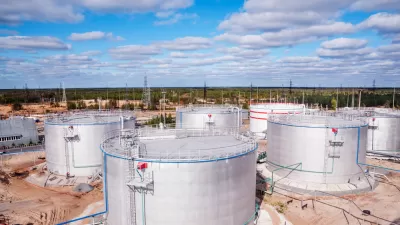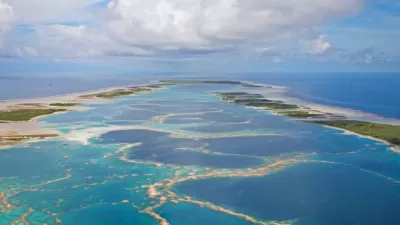Noted energy expert Daniel Yergin has written "The Quest" as an update to his landmark 1991 book, "The Prize: The Epic Quest for Oil, Money, and Power" to capture changes in the oil industry. Full transcript and video of NewsHour interview available.
"Author and analyst Daniel Yergin tackled the history of oil in 1991 in his Pulitzer Prize-winning book "The Prize." Now he's updated the story and widened the lens further in a new book, "The Quest: Energy, Security, and the Remaking of the Modern World." Yergin is the chairman IHS Cambridge Energy Research Associates, which does consulting work for the industry. He has also served on government panels looking energy use."
Yergin explains to NewsHour anchor Jeffrey Brown why concerns of 'peak oil' are overstated, explaining that oil production goes in cycles, and now there is "expansion of production in, of all places, the United States in ways that were not expanded even a couple of years ago...(N)o one expected North Dakota to be the fourth largest oil-producing state in the United States five years ago. And yet it is today."
Yergin emphasizes the role of"state regulation, which most people don't realize, but it's really the states that regulate oil and gas production."
JEFFREY BROWN: Now, inevitably comes the question of the impact of our energy use on the planet, right, in the form of climate change, something you address here.
Is it possible to continue our focus on fossil fuels and still protect the planet?
DANIEL YERGIN: I ended up writing six chapters on it because it's such a fascinating story...But I think that so much of the book is really about what I call the great revolution, about technology and finding technologies that provide answers. We have been doing that for two-and-a-half centuries. And I don't see why we will stop.
FULL STORY: Author Daniel Yergin on U.S. Need for a 'Diversified Energy Portfolio'

Planetizen Federal Action Tracker
A weekly monitor of how Trump’s orders and actions are impacting planners and planning in America.

Map: Where Senate Republicans Want to Sell Your Public Lands
For public land advocates, the Senate Republicans’ proposal to sell millions of acres of public land in the West is “the biggest fight of their careers.”

Restaurant Patios Were a Pandemic Win — Why Were They so Hard to Keep?
Social distancing requirements and changes in travel patterns prompted cities to pilot new uses for street and sidewalk space. Then it got complicated.

Platform Pilsner: Vancouver Transit Agency Releases... a Beer?
TransLink will receive a portion of every sale of the four-pack.

Toronto Weighs Cheaper Transit, Parking Hikes for Major Events
Special event rates would take effect during large festivals, sports games and concerts to ‘discourage driving, manage congestion and free up space for transit.”

Berlin to Consider Car-Free Zone Larger Than Manhattan
The area bound by the 22-mile Ringbahn would still allow 12 uses of a private automobile per year per person, and several other exemptions.
Urban Design for Planners 1: Software Tools
This six-course series explores essential urban design concepts using open source software and equips planners with the tools they need to participate fully in the urban design process.
Planning for Universal Design
Learn the tools for implementing Universal Design in planning regulations.
Heyer Gruel & Associates PA
JM Goldson LLC
Custer County Colorado
City of Camden Redevelopment Agency
City of Astoria
Transportation Research & Education Center (TREC) at Portland State University
Camden Redevelopment Agency
City of Claremont
Municipality of Princeton (NJ)





























